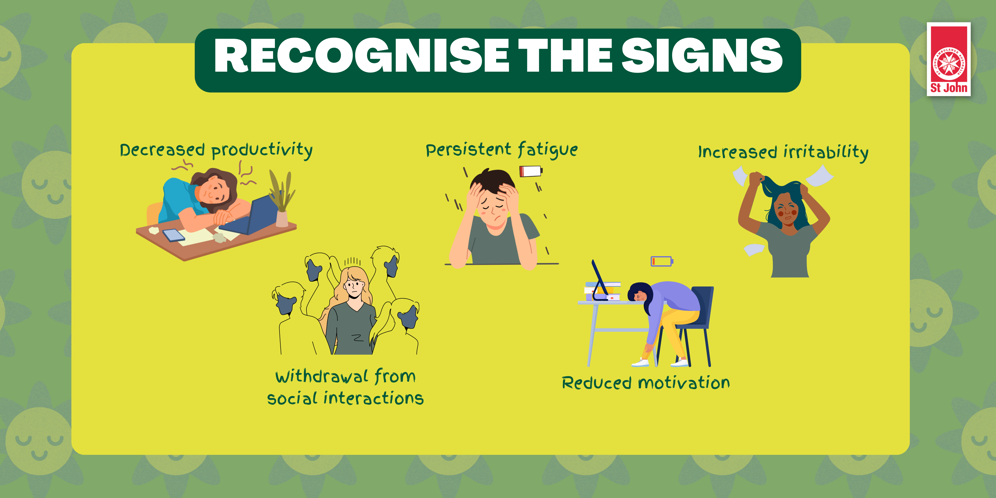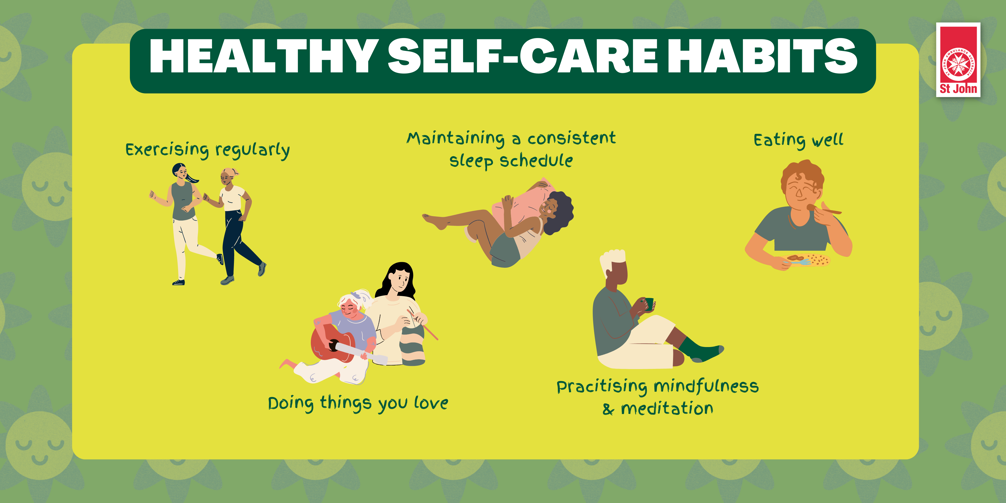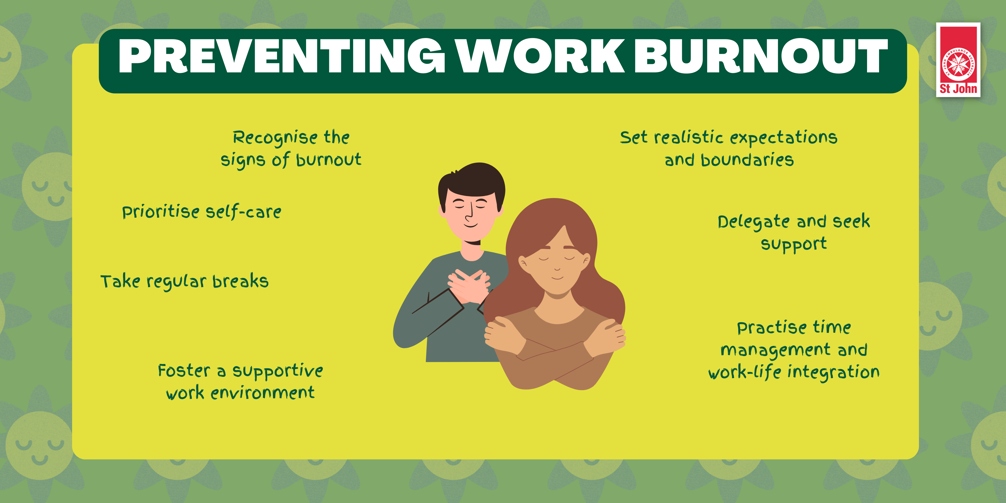7 Simple Ways to Prevent Work Burnout

In today's fast-paced work environment, burnout has become a common issue affecting individuals across various industries. Burnout is a state of chronic physical and emotional exhaustion, often accompanied by feeling down and overwhelmed, which can have severe consequences on both personal well-being and professional productivity.
However, by implementing effective strategies, individuals can mitigate the risk of burnout and maintain a healthy work-life balance. In this article, we will explore actionable steps to prevent burnout and foster better mental health, as well as a more sustainable and fulfilling work experience.
Recognise the Signs of Burnout

The first step in preventing burnout is to identify the early warning signs. Some common indicators include persistent fatigue, reduced motivation, decreased productivity, increased irritability, and withdrawal from social interactions. By being aware of these signs, individuals can take proactive measures to address them before burnout escalates.
Set Realistic Expectations and Boundaries
Establishing realistic expectations is essential for avoiding burnout. Recognise your limitations and communicate them effectively with your superiors and colleagues. Learn to say no to excessive workloads or tasks that go beyond your capacity. Additionally, set boundaries between work and personal life. Disconnect from work-related communication outside of working hours and allocate time for hobbies, family, and relaxation. Creating a clear separation between work and personal life helps prevent burnout and fosters a healthier work-life integration.
Prioritise Self-Care

Self-care is crucial for maintaining a healthy work-life balance and preventing burnout. It involves setting aside time for activities that promote relaxation, rejuvenation, and personal well-being, such as engaging in regular exercise, practising mindfulness or meditation, establishing a consistent sleep schedule, and ensuring a nutritious diet. Taking care of your physical and mental health outside of work helps build resilience and reduces the risk of burnout.
By undertaking a mental health course, such as St John’s Mental Health and Wellbeing Essentials Workshop, you can learn practical skills and strategies that can support and improve your mental health.
Practise Time Management and Work-Life Integration
Efficient time management is crucial for preventing burnout. Prioritise tasks, set realistic deadlines, and break larger projects into manageable chunks. Avoid multitasking as it can lead to decreased productivity and increased stress. Instead, focus on one task at a time and allocate specific time slots for different activities. Additionally, strive for work-life integration by incorporating activities that bring joy and fulfillment into your daily routine. Find ways to pursue hobbies or spend time with loved ones during breaks or after work, enhancing overall satisfaction and reducing burnout.
Take Regular Breaks
Taking regular breaks throughout the workday is vital for recharging and preventing burnout. Short breaks between tasks allow your mind to rest and recharge, increasing focus and productivity. Engage in activities that help you relax and recharge, such as stretching, walking, or engaging in conversation with colleagues. If you are feeling particularly fatigued, don't forget to make use of your vacation days to completely disconnect from work and rejuvenate yourself.

Delegate and Seek Support
Don't be afraid to delegate tasks and seek support when needed. Trying to handle everything on your own not only increases stress but also hampers efficiency. Collaborate with your team members, share responsibilities, and tap into the expertise and strengths of others. Effective delegation not only lightens your workload but also fosters a sense of teamwork and support, reducing the risk of burnout.
As a colleague, you can equip yourself with the essential tools needed to support someone experiencing a mental health crisis. Through courses such as First Aid For The Mind e-Learning and Mental Health and Crisis Support, you can gain useful skills to support your workmates.
Foster a Supportive Work Environment
Promoting a supportive work environment is crucial for preventing burnout among employees. Employers should encourage open communication, provide resources for stress management, and recognise and reward employee achievements. Similarly, fostering a positive company culture that values work-life balance and employee well-being creates a healthier and more productive work environment.

All in all, burnout is a serious concern that affects individuals across various professions. By recognizing the signs of burnout and implementing effective prevention strategies, you can protect your well-being and maintain a healthy lifestyle while excelling in your career.

MENTAL HEALTH AND WELLBEING ESSENTIALS WORKSHOP
Develop an awareness and understanding of our own mental health and wellbeing, so that we can better support ourselves through the challenging times.

FIRST AID FOR THE MIND ELEARNING
This eLearning course is designed to arm you the tools you will need to support someone experiencing a mental health crisis.

MENTAL HEALTH AND CRISIS SUPPORT
Gain the essential skills and confidence to recognise and support people with a range of mental health issues such as depression and anxiety.
